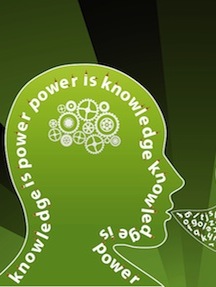By RoseAnn Foster
Most college students misunderstand the idea of a liberal arts education. They equate it with getting a liberal arts degree in a field that avoids the sciences. They then raise the same tired question, “What are you going to do with that when you graduate? Teach?” The latest form of this skepticism comes from politicians and business leaders who seem to believe that such an education offers little in the way of innovation and progress. These skeptics, however, are failing to understand not only what a liberal education is but also why it is important.
A liberal arts education is one that challenges the mind and is not confined to one college or school within a university setting. Mortimer J. Adler defines it in his classic article “What Is Liberal Education” as, “…[education] traditionally intended to develop the faculties of the human mind, those powers of intelligence and imagination without which no intellectual work can be accomplished. Liberal education is not tied to certain academic subjects…In the liberal-arts tradition, scientific disciplines, such as mathematics and physics, are considered equally liberal…” Ultimately, this shapes persons able to think critically, analyze situations, and communicate with others in multiple disciplines and from varying backgrounds. These skills easily translate into real world success, though perhaps the translation is less immediately seen than with other skills such as those from a business degree.
Adler states in “What is Liberal Education,” “[Liberal Education]… seeks to develop free human beings who know how to use their minds and are able to think for themselves. Its primary aim is not the development of professional competence, although a liberal education is indispensable for any intellectual profession.” Students attaining a liberal arts education have knowledge of multiple disciplines and can, therefore, use what they have learned to solve problems in new ways. They can integrate multiple disciplines to innovate new ideas and techniques. Furthermore, they can articulate these ideas to others because they have been trained to communicate well.
As Allie Grasgreen mentions in her recent article, “Liberal Arts Grads Win Long-Term,” featured on insidehighered.com, “Employers consistently say they want to hire people who have a broad knowledge base and can work together to solve problems, debate, communicate and think critically, the report notes – all skills that liberal arts programs aggressively, and perhaps uniquely, strive to teach.”
In Secretary Churchill’s blog, he notes that the Arts and Sciences Initiative of Phi Beta Kappa contends that arts and science education expands opportunity, drives innovation and ingenuity, and is an investment in America’s future. Indeed, a liberal education that develops well-rounded individuals capable of thinking for themselves, developing new ideas, and not being confined by a lack of understanding of their tasks, brings all three ideas together. A liberal education is not merely training for a single career or vocation, but rather a development of the mind.
In December 2012, Business Insider published “30 People With ‘Soft’ College Majors who Became Extremely Successful.” The article cites various industries and innovators and those on the list span from Mitt Romney and Robert Gates to Michael Eisner (former Disney CEO) and Harold Varmus (Nobel Laureate in Medicine). As can be seen from these examples, those with a liberal arts education are equipped to not only be successful in their own careers, but also recognize and seek opportunity within (or outside of) their industries, drive innovation, and as free thinkers, shape America’s future. A liberal arts education, as Secretary Churchill explains, is the education for the betterment of America. It is the education of forward thinkers able to shape the world with the capabilities of their minds.
RoseAnn Foster is a senior at the University of Mississippi majoring in English. The University of Mississippi is home to the Beta of Mississippi Chapter of Phi Beta Kappa.




